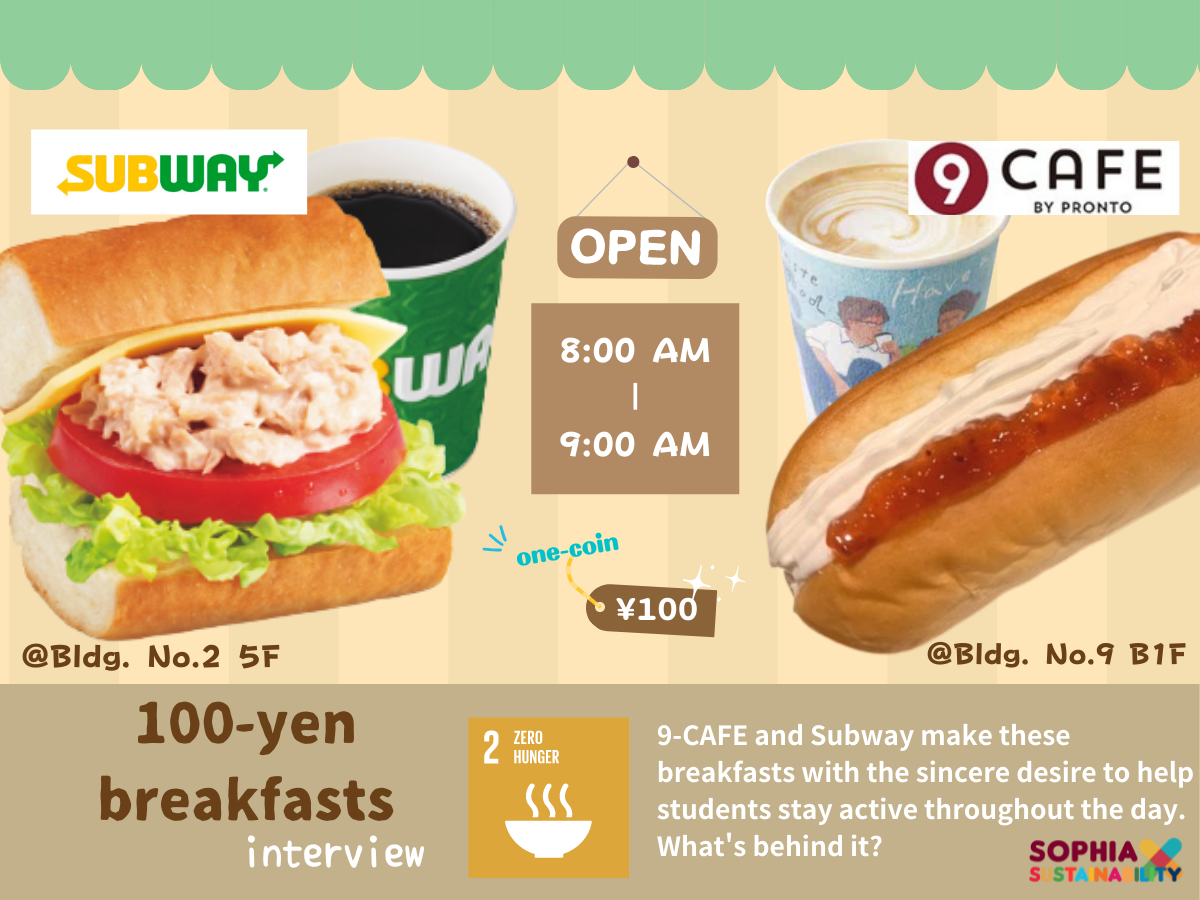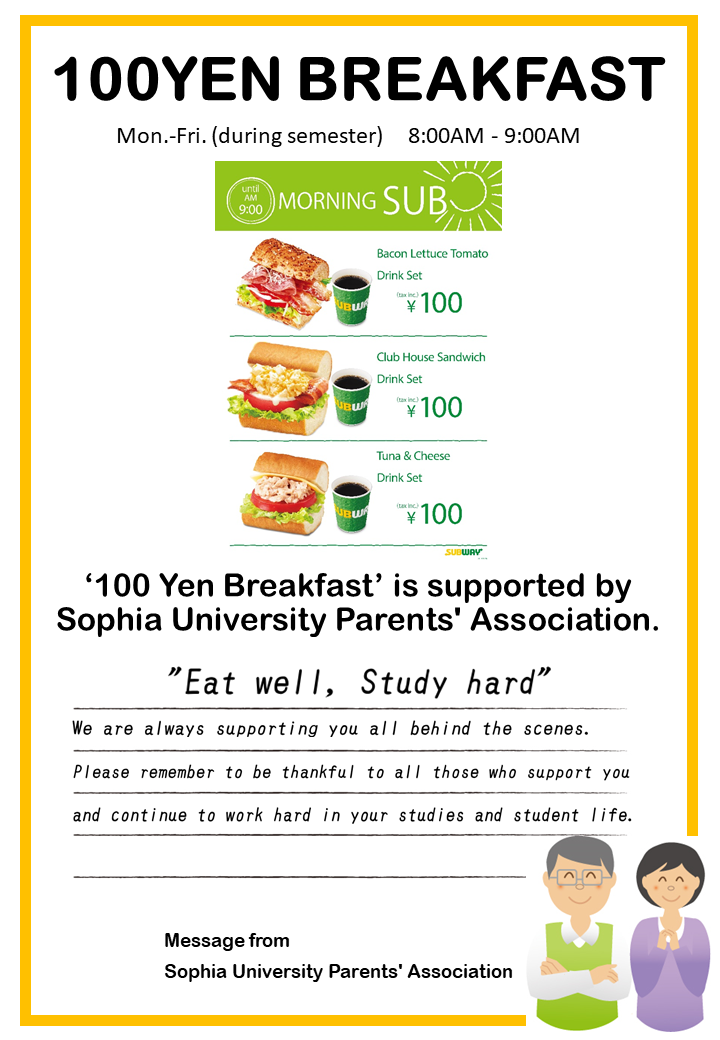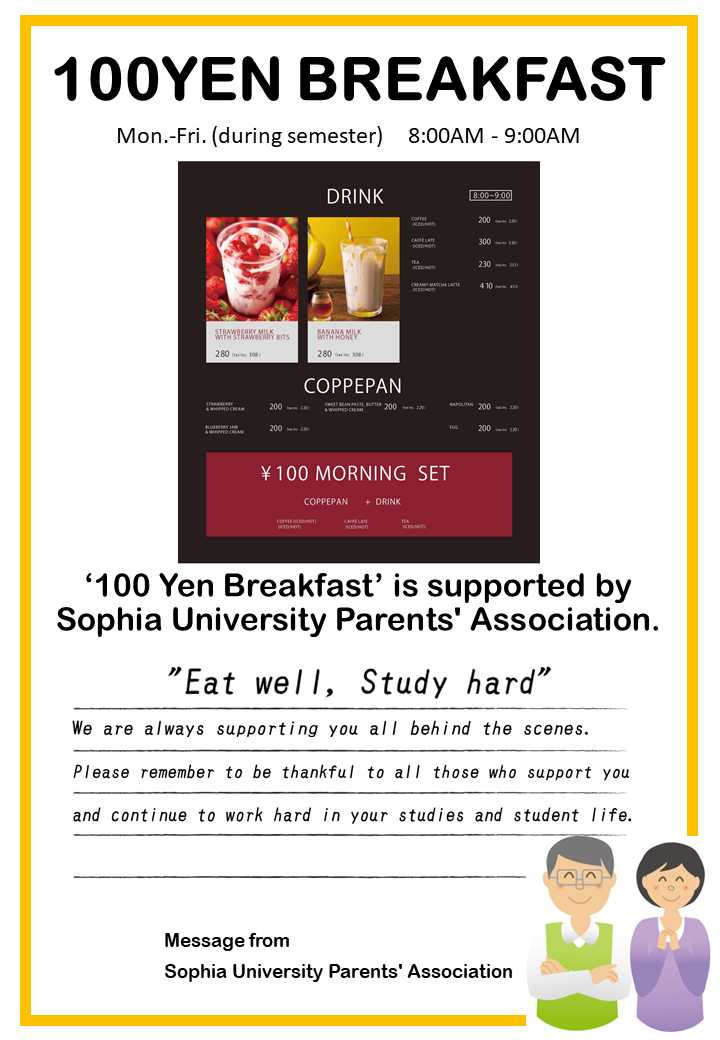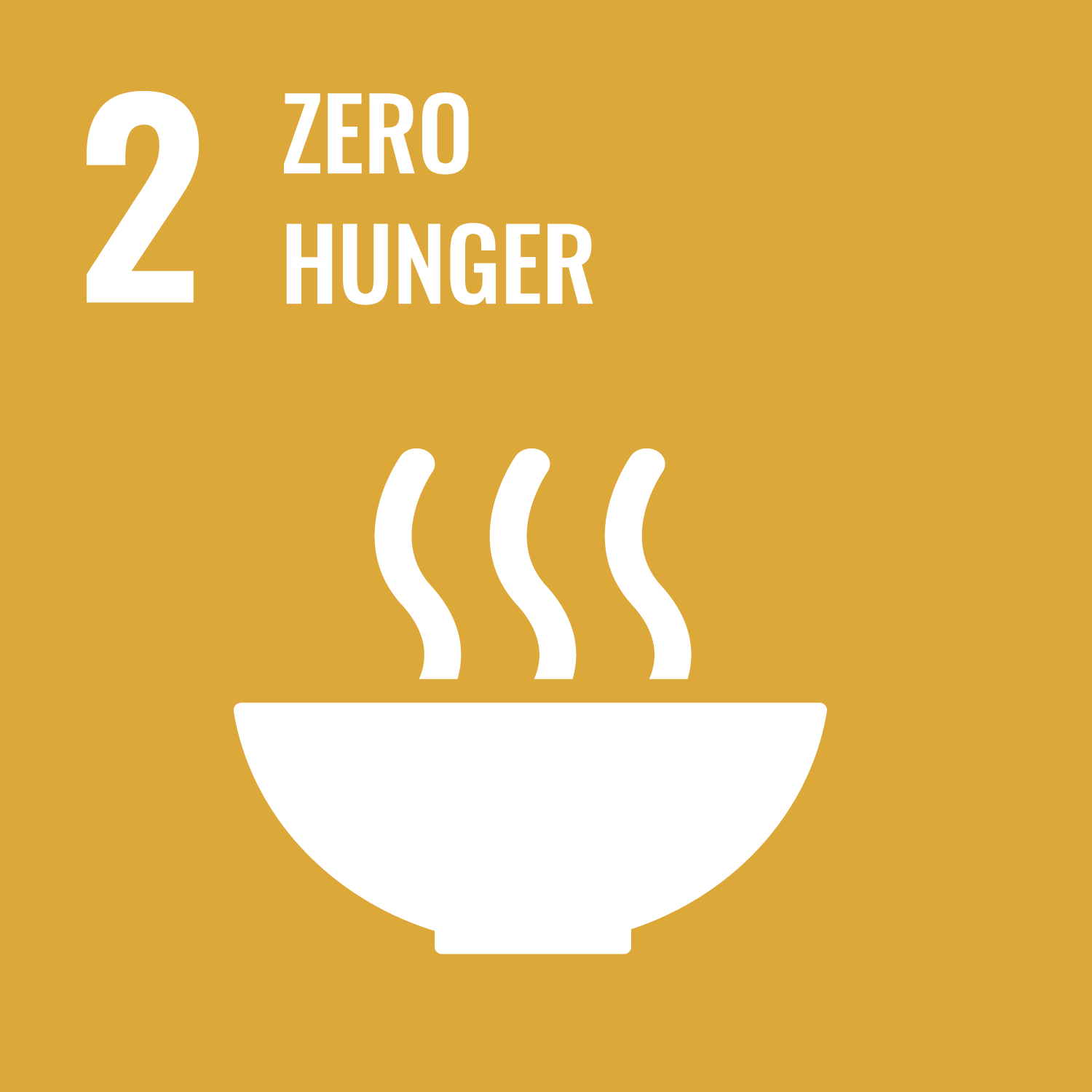【Part1】100-yen breakfasts:What’s behind it? (Interview with 9-CAFE by PRONTO and Subway)
- Sophia School Corporation
- Social & Local Cooperation

9-CAFE by PRONTO and Subway
It might be surprising, but at Sophia University, between eight and nine a.m. you can enjoy 100-yen breakfasts comprising a soft bread roll from 9-CAFE by PRONTO or a sandwich from Subway, together with a drink.
9-CAFE and Subway, that provide these 100-yen breakfasts, are not only working to keep students healthy, but also to conserve the environment.
9-CAFE and Subway make these breakfasts with the sincere desire to help students stay active throughout the day. We spoke to Mr. Kawashima and Mr. Mizuhara from Pronto Service Inc., which runs 9-CAFE, and Mr. Kato, a store manager for Subway.

—What is the current usage situation like? Are there any changes in usage, such as the number of students using the service, since the COVID-19 pandemic started?
Mizuhara(Pronto Service):
At the moment, we are serving from around 70 to 100 breakfasts a day. Although this number is slightly lower than before the pandemic, there is still a need, so it has not changed much.
Going forward, we want to continue providing students with a strong motivation for getting up early and coming into the university.
—Please tell us about your initiatives to reduce plastic use and food loss.
Kawashima (Pronto Service):
Both 9-CAFE and Subway work to reduce food loss by making an amount of soft bread rolls and sandwiches for the breakfasts that will sell out during the lunchtime rush if there are any left over.
Mizuhara:
We always try to address environmental issues.
At 9-CAFE, we first of all stopped using plastic cups for iced drinks. Cold drinks are now served in the same paper cups that we use for hot drinks, which has reduced the amount of plastic used.
We have also switched from plastic to bamboo stirring sticks as part of our plastic reduction efforts.
Furthermore, we have started using straws that are made out of a plant-derived compound that meets the standard of comprising at least 25% biomass. We are also planning to steadily switch away from single-use plastics like forks and spoons in accordance with the Plastic Resource Circulation Act which will come into force this April.
Additionally, from this April we will offer discounts to customers who use returnable tumblers in order to encourage people to use their own bottles and cups.
Kato (Subway):
At Subway, we are also striving to reduce plastic usage in the same way as 9-CAFE through the use of straws made from a plant-derived compound that meets the 25% biomass standard.
Kawashima:
Our head office also wants to help as much as possible with the initiatives being carried out by the Sophia University store.
Previously we used to serve pasta in a container with a plastic lid, but now we only give these lids to customers who request them. This is an original initiative thought up by the Sophia University store.
Both Pronto and Subway have a strong desire to implement voluntary initiatives that reflect the demands and feedback of Sophia University students.

—You seem to be carrying out a variety of voluntary efforts at your stores to achieve the SDGs.
That’s right. This year, we are particularly focusing on running the store under the key phrase of “health management.” Health management can improve the human aspects of our business, including enabling employees to work more energetically and making operations more considerate of people.
Switching from our previous profit-focused management model to health management enables employees to work vigorously and take initiative while pursuing profit, which also leads to work satisfaction. Providing employees with an atmosphere that makes work feel worthwhile will attract motivated people which will then naturally led to business growth. This year, our goal is to create such an environment at Pronto.
Going forward, we intend to continue enthusiastically serving 100-yen breakfasts in order to support both students and the achievement of the SDGs.
—You mentioned meeting the demands of students, so is there anything that you would like to say to Sophia University students or anything that you would like them to help you with?
Mizuhara:
We are very proud of our efforts, such as the 100-yen breakfast menu we are delivering and the various reforms we are making to achieve the SDGs, so we would like students to actively use our services. We hope that new students and students who have only been able to take online classes so far will be able to come by some time this year.
As Takashi Munakata, President of the Sophia University Parents’ Association, which supports the 100-yen breakfast initiative, said, we hope so many people will use the service that we will receive even greater demand for support.
Kato:
Watching the students studying and talking in the space in front of the Subway store, I always ask myself how we can connect more closely to these students’ lives.
I hope that many students will continue to use the initiative and that we can operate in a way that brings us even closer together.
(Student Staff Oh, Harada and Shimizu from Office of Sophia Sustainability Promotion)


